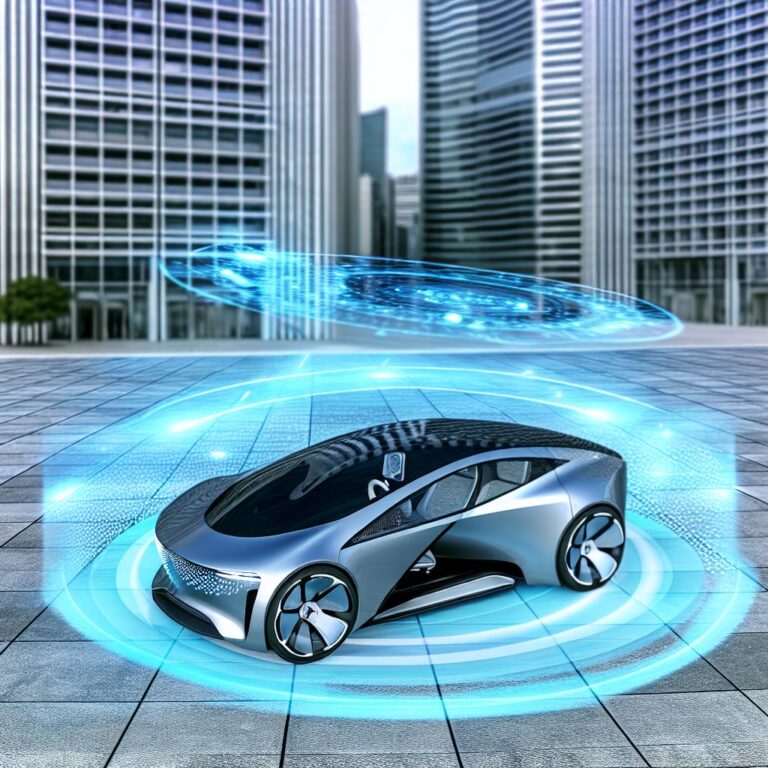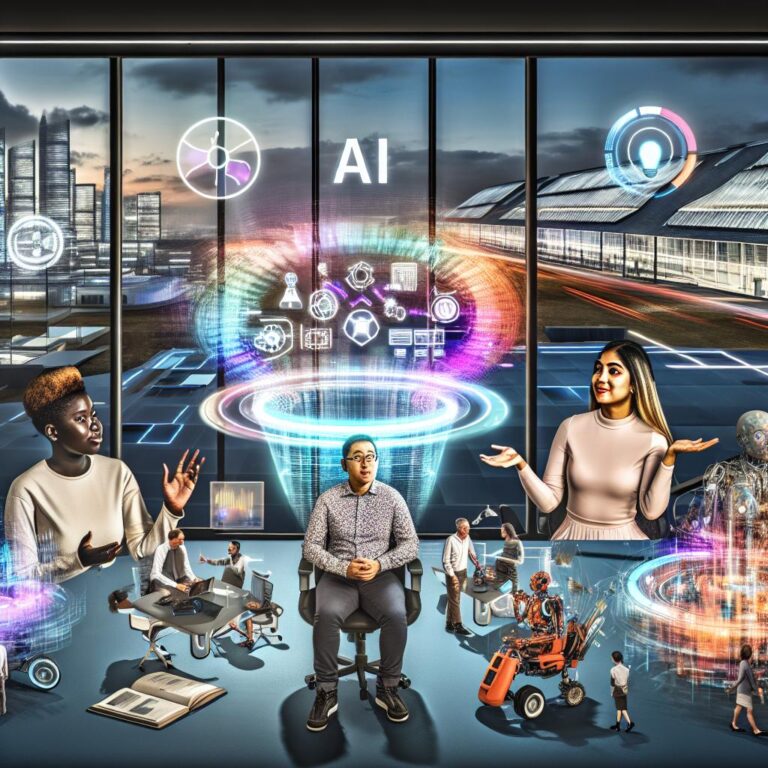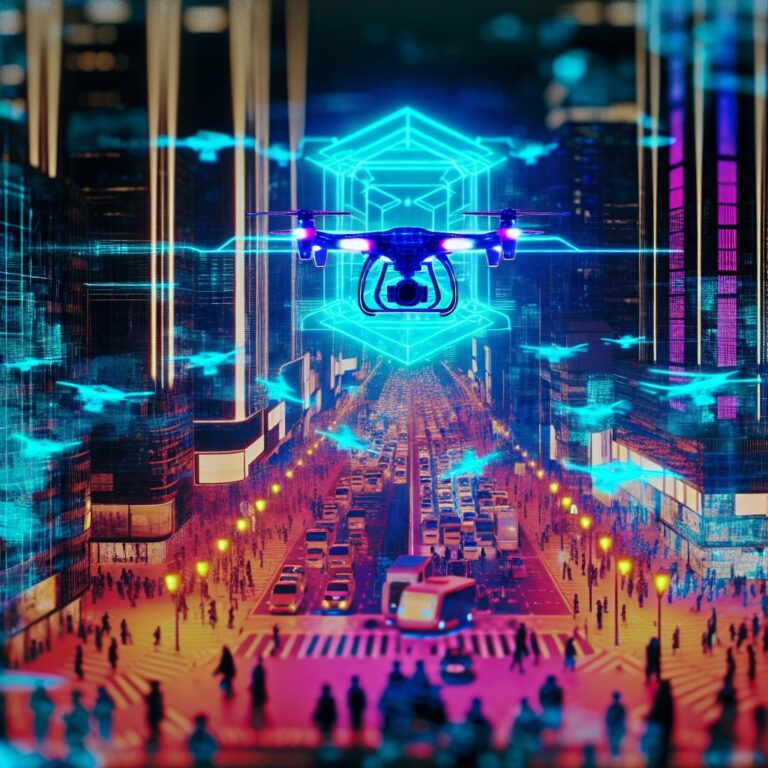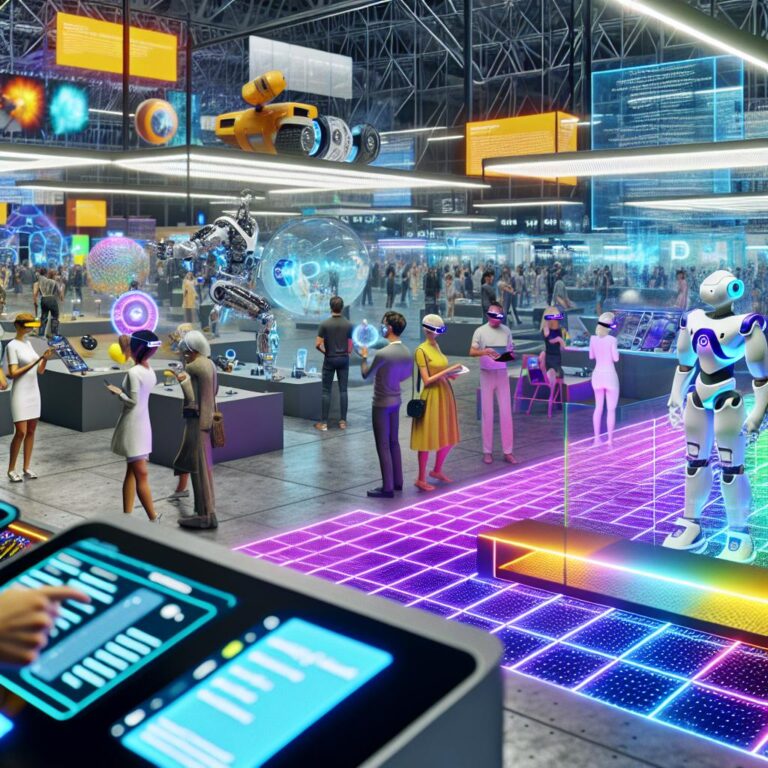Who’s winning the AI race: US or China?

U.S. and China AI Competition:
- The U.S. relies on private tech companies like Amazon, Microsoft, and Google, alongside university research funded by the government, promoting market-driven innovation.
- China prioritizes state-led AI advancement with ambitious goals and investments, aiming to lead by 2030, using vast data for advanced AI.
- The global AI market could hit $5.8 trillion annually, impacting jobs and economies.
- Key tech companies innovate across sectors: Google in health and search, Amazon with Alexa and logistics, Microsoft in corporate AI and AI ethics.
- AI is transforming industries with natural language processing and computer vision, driving demand for AI roles, and raising ethical concerns over privacy and accountability.
- Startups and established firms shape AI progress, with investment necessary for further innovation and ethical development.
The AI race is heating up, and the showdown is none other than the U.S. versus China. With both giants vying for supremacy, every tech fan must ask: who's leading the charge? In this post, we explore their strategies, company roles, and cutting-edge advancements. From political divides to global impacts, we'll dissect the elements driving this intense rivalry. Dive in to understand how this battle shapes our tech future and its role in the global economy.
How Are the U.S. and China Competing in the AI Race?

AI is the big game right now. The U.S. and China are both in it to win. They have very different ways to get there, though. Let's look at what they are doing.
The U.S. has many tech players. Companies like Amazon, Microsoft, Apple, Google, and Facebook lead the market here. They focus on innovation and building new AI tools. They invest a lot of money to keep ahead. For example, AI is a big deal for Amazon Web Services. They have the biggest market share in the cloud business.
The U.S. does not just rely on private companies. It also has many research groups in universities. These groups get funds from the government to research AI. The mix of businesses and schools helps the U.S. make new and better AI systems.
China's strategy is different. The Chinese government is a big player in AI development. They put AI on their top list of national priorities. They have big goals, like being the top in AI by 2030. This means China is ready to spend lots of money and use their resources to win.
China also has giant tech companies like Alibaba and Tencent. These firms put a lot of energy into AI as well. China also uses a lot of data for their AI systems. This allows for the creation of more advanced learning models.
The economic and political approaches between the U.S. and China differ. The U.S. follows a market-driven road. Private companies take the lead with government support. They focus on making money from innovations and capturing market share.
China has a planned path. Their government is at the helm. They guide AI progress with clear goals and funds. This approach lets them move fast but also influences how much freedom companies have.
What happens because of this U.S.-China AI rivalry? It affects everyone, from small businesses to big tech firms. The competition means AI tools are getting better faster. But it also leads to tension between the two countries. Each wants to be the best, influencing politics and economies globally.
The global AI competition has big stakes. AI is transforming industries and how companies do things. The market expects hundreds of billions to come from AI. This growth affects jobs worldwide. AI roles are on the rise. The U.S. saw a 344% increase in AI jobs between 2015 and 2018. China is also pushing hard to train more AI experts.
But having the best tech doesn't always mean a country wins. Business models matter, too. Companies need to innovate how they offer AI to people. AI as a Service (AIS) is one strong model now. Through cloud computing, Amazon, Microsoft, and Google offer these services. They're all competing for dominance in this field.
This growth and global AI race present both challenges and opportunities. It means more advanced systems but also more competition. For the U.S. and China, winning means not just having the best AI but also reshaping the future.
Both the U.S. and China are determined to lead. Each plays to its strengths, with innovation and planning shown in different ways. This clash doesn't just matter for them but could decide who shapes tomorrow's technology.
What Role Do Major Companies Play in the AI Race?
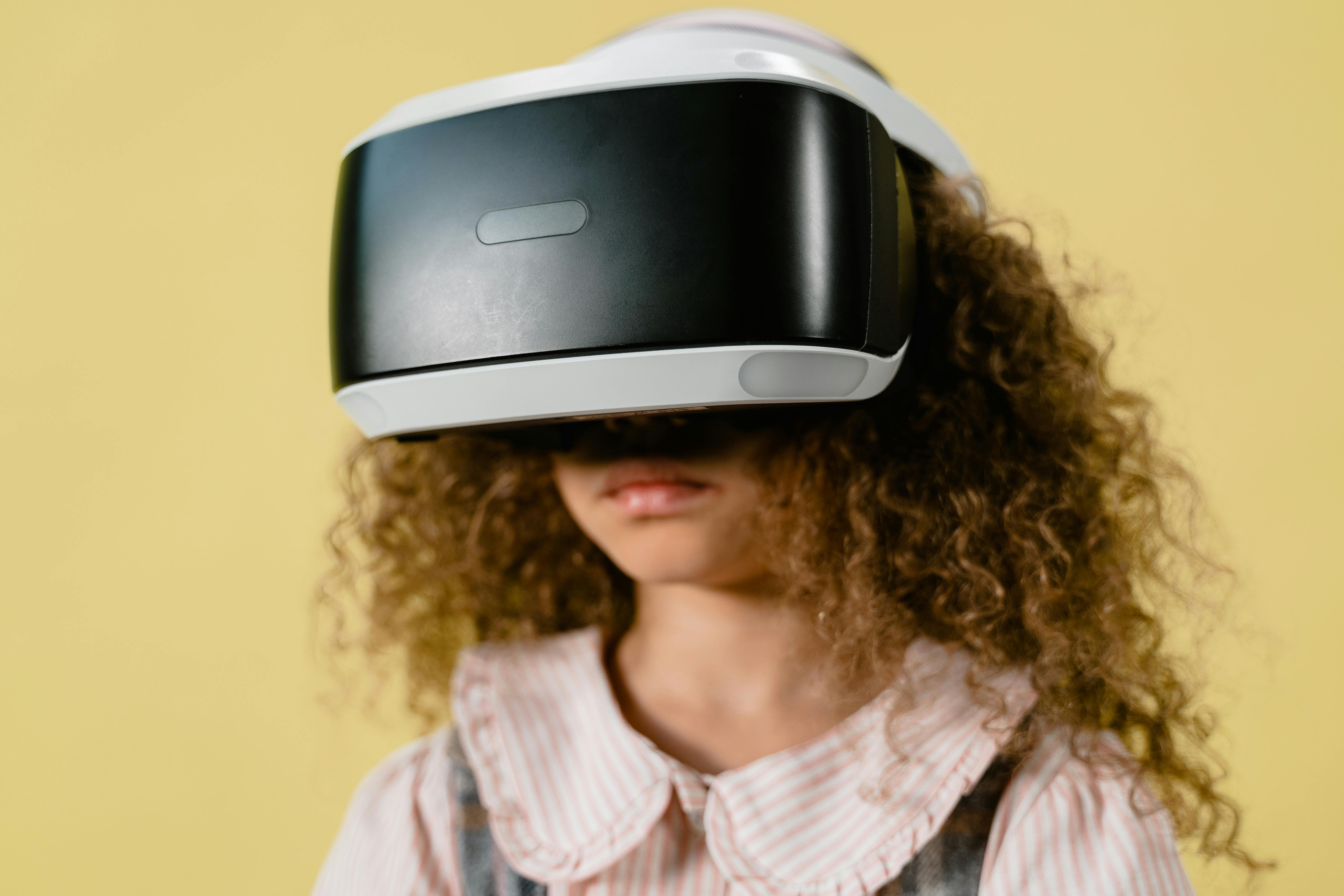
Major companies are battling it out in the AI race. Each one wants to be the leader. But how are they driving AI advancements? Let's take a closer look at Google, Amazon, and Microsoft.
Google invests billions in AI research. It creates smart tools like Google Assistant. These tools change how we use our devices. Google has also been using AI in search engines with advanced algorithms. This makes searches fast and accurate. Google's AI projects impact healthcare, with AI helping in tasks like detecting illness from medical scans.
Amazon uses AI to enhance its customer service. The company is famous for its voice assistant, Alexa. Alexa turns regular homes into smart homes. Plus, Amazon uses AI to improve its delivery network. With AI, they predict what you might buy next. This forecasting helps with stock and delivery planning, influencing how products move across the globe.
Microsoft is pushing AI into classrooms and businesses. They have developed AI tools like Cortana and Azure AI. These tools help in operations and boost productivity. Microsoft invests heavily in AI ethics too. It ensures that AI projects are safe and fair for everyone. These steps lead to AI systems that can earn trust from users. Their AI research also supports developers worldwide.
The significance of AI investments is clear. More money in AI means faster growth and better tech. These investments encourage innovation and push boundaries. It's no surprise, then, that Amazon, Google, and Microsoft spend millions. The advancements they make shape today's digital economy. They aim to dominate various sectors and gain technological advantages.
Startups offer a unique influence on the AI industry. They are nimble and not as bound by tradition as big firms. Startups innovate quickly, bringing fresh ideas into play. They often target niche needs and create groundbreaking solutions. Their growth prompts established companies to rethink strategies.
Also, startups can disrupt entire industries. They introduce new AI concepts and productivity boosts. Many tech giants even buy startups to absorb new technology. This blending of ideas spurs both parties onwards. Still, challenges remain, with startups needing funding and market influence to survive.
Big companies and startups both play a crucial role. With established firms, we see stable, large-scale projects. These firms can afford long-term plans and resource-intensive innovation. On the other hand, with startups, we see rapid exploration. They often make advances with speed and agility.
The current AI market size is noteworthy. Reports suggest it could reach $5.8 trillion annually. This showcases the economic potential AI holds. Big tech and startups want a piece of this lucrative pie. Their innovations push the market into new territories.
Tech giants also affect every job market. AI's rise means increasing demand for new jobs. Industries now need AI engineers and data scientists. The tech giants help fill this gap with competitive salaries and job postings.
AI investments by tech companies help shape our digital future. They propel us toward a more intelligent world. From making things easier in everyday life to developing advanced business tools, AI is everywhere. Companies everywhere are vying for dominance.
In summary, major companies like Google, Amazon, and Microsoft drive AI innovations globally. Startups are vital too. They bring energy and new ideas. Together, these entities help define AI's role today and tomorrow. They influence economies, shape job markets, and change how we interact with technology every day.
What Are the Latest Technological Advancements in AI?

In 2023, artificial intelligence (AI) continues to evolve. Breakthrough AI technologies shape sectors like healthcare, finance, and more. One example is natural language processing (NLP). It allows machines to understand and respond to human language better. This innovation leads to smarter chatbots and virtual assistants.
Another area of growth is computer vision. It helps machines identify objects or patterns in images. Companies use this in everything from facial recognition to autonomous vehicles. Both NLP and computer vision transform how we interact with technology every day.
In the realm of medical science, AI advancements shine bright. AI tools help doctors diagnose diseases earlier and prescribe personalized treatments. This is often done by analyzing vast amounts of patient data. AI also assists in drug development, speeding up the research process. These tools save time and money, which benefits both doctors and patients alike.
Quantum computing is the next frontier. It promises to solve complex problems much faster than today's computers. But how does quantum computing intersect with AI? Quantum computers process information differently, which means AI algorithms can run more efficiently. This boosts AI’s ability to tackle problems like climate modeling or cryptography. Though still in early stages, quantum AI holds immense potential for the future.
Tech giants like Microsoft, Apple, and Google are key players in these advancements. Their investments in AI-driven technology fuel innovation across industries. These companies explore new ways to integrate AI, like developing smarter devices or enhancing cloud computing services. Their focus on AI helps push the boundaries of what technology can achieve.
AI in healthcare has seen significant strides as well. Innovative applications now detect cancer early, predict patient outcomes, and even guide surgeries with precision. Machine learning algorithms analyze patient data to uncover insights unseen by human eyes. This ability to process and learn from data changes the game in medical treatment and research.
AI technologies also improve mental health care. Virtual therapists offer support through apps, providing access to mental health resources. These tools offer an alternative for those who struggle to find help in traditional settings. While not a replacement for human therapists, they complement the system, broadening access to care.
Moreover, AI’s impact on the job market continues to grow. Between 2015 and 2018, AI engineering positions rose by 344% in the U.S. This shows how critical AI skills are becoming in various industries. As AI technologies advance, the demand for skilled AI professionals will only increase.
Yet, emerging technologies also bring challenges. Businesses must navigate new ethical concerns, such as data privacy and misuse. Regulations are still developing, which leaves many questions unanswered. Companies need to act responsibly, ensuring AI is used for good and not harm.
In 2023 and beyond, AI will delve deeper into everyday life. Technologies like NLP, computer vision, and quantum AI could redefine industries. But with these innovations comes a need for careful consideration. Balancing progress with caution is key to realizing AI’s full potential while minimizing risks.
How Is AI Impacting Global Economics?
AI is shaking up jobs and economies worldwide. Its impact is vast and deep. It creates new jobs while altering old ones, which can cause job losses. AI's impact on the economy is not just about robots replacing jobs. It's about making industries more efficient. AI often boosts productivity and innovation, leading to new markets. But some worry about job security and inequality. These changes mean global economies must adapt and grow with AI.
AI affects global economic growth and shifts in several ways. It speeds up how businesses operate. Companies can make decisions faster because AI systems process data quickly. AI helps improve supply chains, forecasting, and market analysis. When a firm uses AI, it might gain a competitive edge, resulting in more profits. AI can also help economies grow by creating new technologies. These need skilled workers and encourage education and training investments.
Intelligent systems change how businesses operate. AI automates tasks, freeing up people for more complex work. This can lead to better customer service as employees focus on human interaction while machines handle data. Businesses use AI to identify market trends and customer preferences. This knowledge helps firms stay ahead of competitors. Global trade benefits from AI, too. By making logistics more efficient, AI reduces costs and time in getting products to market.
The global AI market shows powerful growth. It's set to be worth trillions each year. Such massive growth underscores AI's economic significance. Major companies invest heavily in AI to claim market leadership. Names like Amazon, Microsoft, and Google pour in billions. They hire top talent and develop new AI tools and services. They aim to outpace their rivals in speed and innovation.
The cloud market plays a crucial role in AI's deployment. Cloud computing allows businesses to use AI without huge infrastructure costs. AI as a Service (AIS) might become a top business model. Firms rent AI tools from big cloud providers like Amazon. Verizon, Microsoft, and Google lead the cloud sector. Their strong positions help drive AI adoption in businesses worldwide. The global cloud market's predicted growth supports this trend. A booming cloud market boosts AI deployment and utilization.
AI's potential goes beyond data handling. It can revolutionize human-machine interaction. Future AI systems may display improved communication and thinking skills. Such systems could handle social situations better. They would work alongside humans more seamlessly. These advances could help businesses run more efficiently and enhance customer experiences.
Job markets are already feeling AI's effects. AI engineering roles are rising fast. Between 2015 and 2018, they jumped by hundreds of percent. This demand shows that companies need skilled workers to build and manage AI systems. Leading tech firms, like Amazon and Google, spend big hiring AI experts. The competition for top talent drives up salaries and positions AI work as desirable.
AI's ability to supply accurate, experience-based insights offers vast applications. Companies harnessing AI can achieve significant advantages. Strategic data usage helps firms make better decisions. This capability allows them to understand markets and adjust quickly. New market strategies emerge as businesses learn from AI insights.
AI's impact on global economics is profound. It alters industries, changes job markets, and transforms trade. AI systems help firms improve operations and enhance customer interactions. The rapid growth in AI spending shows its power. While opportunity abounds, challenges remain. Adapting to AI might be tough for some, but its potential is limitless.
What Challenges and Ethical Considerations Does the AI Industry Face?

The AI industry faces many challenges and ethical concerns. The development of AI systems brings both promise and peril. At the heart of the matter lies the question: What ethical challenges does AI development present?
AI development must respect human values and rights. Complex algorithms can lead to bias if not carefully programmed. They reflect the data upon which they learn, which can be flawed. The outcome? Decisions that may seem unfair or discriminatory if biases are not managed.
Another ethical challenge is accountability. Machines act without emotion, yet their decisions affect people. When mistakes occur, who should bear responsibility? Machines executing tasks lack human oversight sometimes, making accountability hard to pin down.
With such challenges, data privacy becomes central. How should data privacy be managed in AI systems? Managing people's data responsibly is critical. AI systems need data to improve, but this data must be handled with care.
Data privacy hinges on consent. Users need to know how their data is used. Transparency empowers users, fostering trust. Encryption and other safeguarding technologies defend against breaches. Lawmakers work to ensure that data handling abides by regulations.
But regulations themselves need to keep pace. What regulations are necessary to ensure responsible AI development? The laws must cover data use, bias, and accountability to protect users. Data processing should follow ethical guidelines. This means more than legal compulsion; it requires moral responsibility.
Building a framework of trust is essential. International standards help create a balanced field, holding everyone to the same standards. These regulations should evolve as AI technology advances.
The field spans the globe, involving cultures with distinct practices. What role can international cooperation play? Global cooperation encourages shared ethical standards, resolving differences between countries with varied regulations.
AI companies, like Amazon and Google, have significant influence. They invest heavily, impacting the direction of development. These tech giants set trends, often leading by example. This influence makes their ethical stance even more critical.
Ethical AI involves the industry's commitment to promoting fairness and transparency. Think of it as building a new ethical norm in technology development. And not just that—it's about creating systems that understand and enhance human values.
Investment in ethical AI research can guide developers. Research increases understanding, helping mitigate ethical and privacy risks. Encouragement from governments and institutions can bolster responsible AI progress.
In the end, ethical AI development affects everyone—from families sharing photos to enterprises using AI-driven data insights. Building consensus on ethical rules is necessary for progress. The AI industry must address these challenges to build a future aligned with humanity's best interests.
Conclusion
The U.S. and China are racing for AI dominance, using varied strategies. While their political and economic tactics differ, their rivalry echoes on the global stage, influencing innovation and markets. Major firms like Google and Microsoft lead AI advancements, while startups bring fresh ideas. Emerging technologies, including quantum computing, promise monumental change in sectors like healthcare. AI's economic influence reshapes markets, jobs, and trade. Yet, ethical hurdles, like data privacy, demand attention. Understanding these dynamics is crucial as we navigate a future shaped by AI's promise and challenges.


